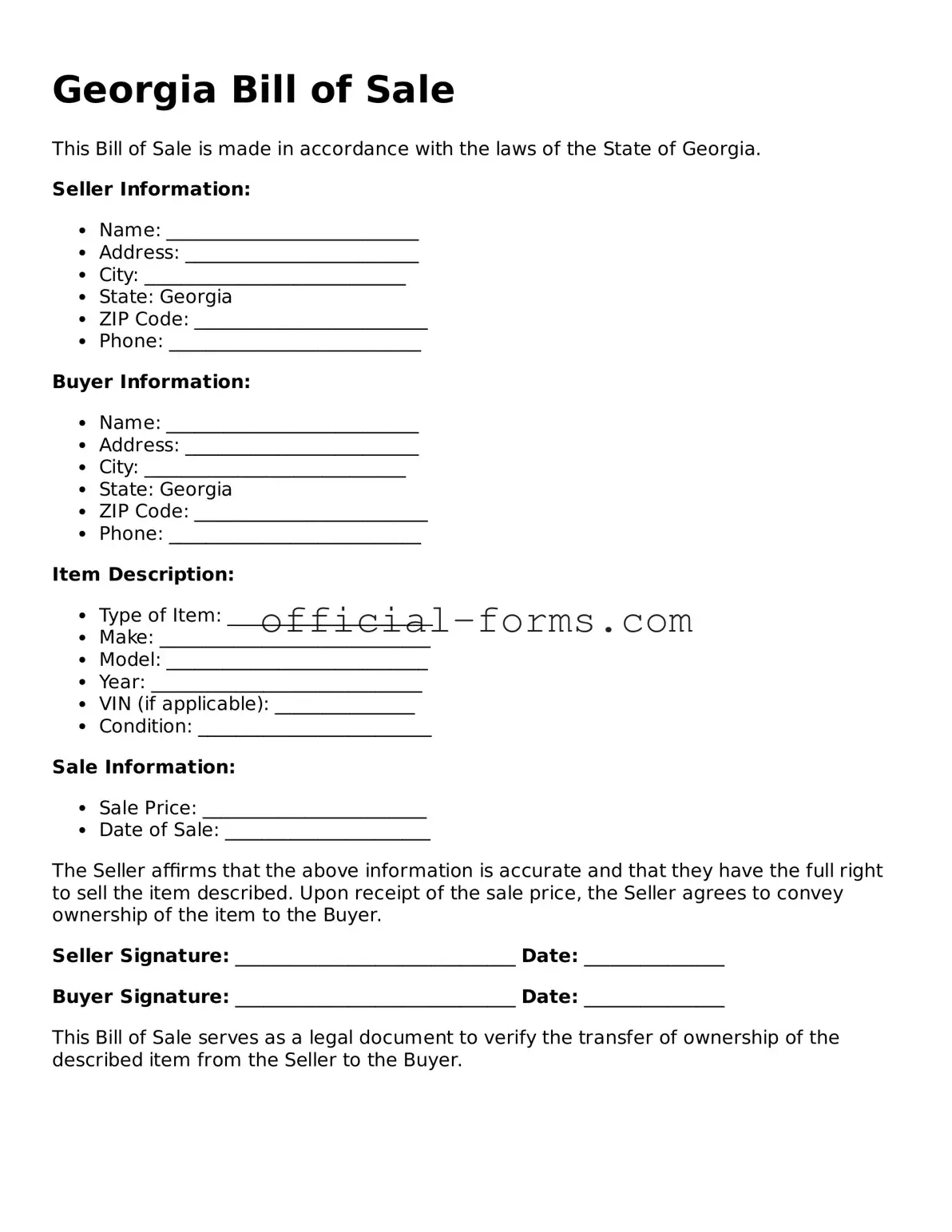Official Georgia Bill of Sale Document
A Georgia Bill of Sale form is a legal document that records the transfer of ownership of personal property from one party to another. This form serves as proof of the transaction and outlines key details such as the buyer, seller, and description of the item being sold. Understanding how to properly complete this form can help ensure a smooth transfer and protect both parties involved.
Open My Bill of Sale Now

Official Georgia Bill of Sale Document
Open My Bill of Sale Now
Don’t leave your form incomplete
Finish Bill of Sale online quickly from start to download.
Open My Bill of Sale Now
or
➤ PDF
